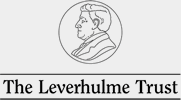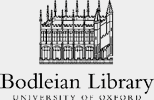Miscellany Poems: The Fifth Part (1704)
The series of miscellanies of which this forms a part was easily the most influential of its era, not least as a model for other miscellanies. The publisher Jacob Tonson and the then Poet Laureate John Dryden had first joined forces for these purposes in 1684-5, stumbling almost by accident on the winning formula of short, varied, previously unpublished verse pieces by several hands which they were to develop over a total of six miscellanies. Dryden"s role was partly to contribute, partly to solicit contributions, and partly to edit and assist contributors. The six Dryden-Tonson collections, with volumes issued previously in 1684, 1685, 1693, and 1694, were reprinted repeatedly until a final consolidated six-volume edition in 1716 represented the first compilation of English verse deliberately offered as a literary anthology, a retrospective collection of material already familiar (from the previous issues) - of what it called "the poetry of the former age". In this form it retained a readership well into the middle of the eighteenth century.
The 1704 Fifth Part was the first to appear after Dryden"s death in 1700, though his prominence continues through the posthumous appearance of ten new poems. This volume maintains the format and scale Dryden and Tonson had established by the 1690s, and is continuous with their earlier volumes in its principles of style, genre, and authorship. Some contributors first appeared in their miscellanies as early as 1684, but most represent the milieu of the 1690s volumes: Addison, Granville, Charles Hopkins. The circle is widened by the appearance of new work by Elizabeth Singer (a friend of Prior), William King, and Dryden"s protégé William Walsh. Some of the excerpts translated from Ovid"s Metamorphoses were eventually housed in Samuel Garth"s complete composite version of 1717, or had been intended for Tate"s composite version, aborted after the appearance of its first volume in 1697. The Fifth Part also includes new poems by Charles Montagu (Earl of Halifax), Garth, Etherege, Cowley (posthumously), Rowe, and others. Rowe was later said by Edmund Curll to have been the volume"s editor, but it is more likely that he served as one of an informal committee of several advisers on this and the final Sixth Part of 1709.
Dr Stuart Gillespie, University of Glasgow




